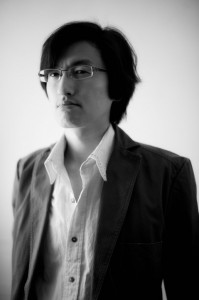Wang is an Expert on Medieval Chinese Poetry, Chinese Literature

For the past two years, Ao Wang has shared with his students at Wesleyan a passion for Chinese poetry and intellectual debate over East Asian cultural issues.
Wang came to Wesleyan in fall 2010 as a visiting professor. He was hired in the 2011-12 academic year as an assistant professor of Asian languages and literatures and East Asian studies.
Originally from Qingdao, China, Wang was drawn to the United States because of his love of American culture, particularly music and poetry. Though he didn’t have a specific career goal at that time, he eventually decided to become a translator of poetry—from Chinese into English, and English to Chinese. Wang went on to earn a Ph.D. from Yale in East Asian languages and literatures.
Prior to teaching at Wesleyan, Wang taught briefly at the University of California-Davis, and then for two years at Trinity College in Hartford. He was attracted to Wesleyan because of its vibrant and active intellectual community. “The students at Wesleyan are serious about their studies,” he says. “They dedicate themselves to their work, and push their teachers to do a better job.” In fact, Wang says, his students actually ask for more homework—the opposite of what he encountered in previous teaching jobs—and push for more intellectual challenge.
This past year, Wang taught “Introduction to Chinese Poetry.” Students in this course, who were not required to know the Chinese language, compared different translations of classical Chinese poems to examine how the image of ancient Chinese poetry was constructed in the process of cultural exchange.
Wang also taught “Gender Issues in Chinese Literature and Culture,” which he called a “fun class.”
“The students are very interested in the daily lives of ancient Chinese women—how they saved money, how they raised and educated their children—and Confucian ideas about Chinese women. These are all very interesting ideas, and still relevant for our time,” he says. The class read excerpts from Yale Law School professor Amy Chua’s parenting memoir, Battle Hymn of the Tiger Mother, and watched debates on YouTube over its messages. A diverse classroom make-up, with about half the students of East Asian descent, made for a very interesting discussion, says Wang.
Wang’s own research focuses on Medieval Chinese Poetry, which he says is not well studied. “There are still numerous important and great poets who have not yet been introduced to the Western world,” he says. “They need study and translation, and eventually will become part of world literature.” Wang is currently co-editing an anthology of contemporary Chinese poetry.
When not working, Wang enjoys reading, playing drums and guitar, and practicing a form of martial arts known as Kuntao.

